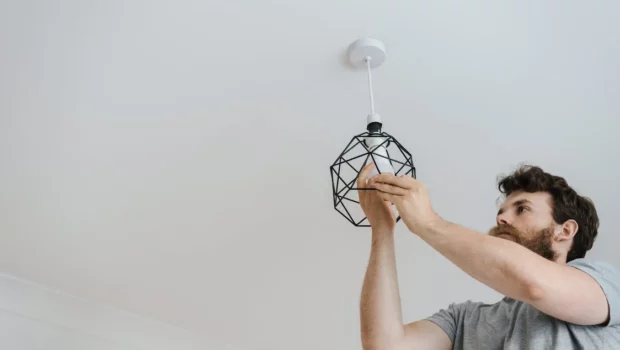5 Things to Keep in Mind Before Dealing with Electrical Work at Home
Electric workers are constantly exposed to hazards, with accidents occurring during repair work, such as falling off a ladder, confusing power cables, or worsening a problem. Because of the inherent risks, you must be professionally trained in electrical work before handling anything to do with electricity. However, if you choose to do DIY electrical work, there are essential things to consider.
First, understand the specific problem you are dealing with, including the tools and how to use them. Secondly, wearing safety gear is essential to protect yourself from electrical hazards. This article details five things you must know when dealing with electrical work at home.
1. Follow the Instructions
Understand the manufacturer’s manual and procedures before doing any home electrical work. This is the only way to be safe from electrical hazards. These directions or procedures guide the maintenance of systems and components and give technical information to help avoid risks associated with the machine or equipment.
One way of staying safe when working with electricity is to follow the manufacturer’s directions when using the electrical equipment. Do not try to work with equipment without understanding its use, as this can be dangerous. For instance, you may risk misusing an applicant because you didn’t read the manual. A good example is the 30 amp extension cord, a convenient way to extend the reach of your motor home’s power cable. Still, you can only use this extension cord if you follow the manufacturer’s instructions, such as not overloading it to exceed the wattage rating.
2. Put Safety First

Source: Unsplash
Anyone handling electricity at home must consider safety measures, such as wearing personal protective equipment when using electrical tools and appliances, including gloves, goggles, and rubber-soled shoes to prevent electric shock. Many potential hazards of dealing with electricity without protection, including arc flash and electric shock, can have devastating effects. However, the likelihood of some of these hazards occurring is relatively low.
Keep electrical cords or plugs away from water and switch off or unplug appliances before adjusting them. Any slight exposure to electric shock and fire can cause unsafe operations in the electrical domain. Also, check potentially current-carrying wires while inspecting cords and electrical connections and avoid overloading plug sockets to reduce the risk of shock.
Wear protective eyewear to reduce the risk of flying sparks and other debris when dealing with an electrical issue since the eyewear protects against possible damaged vision when working with electrical tools.
3. Know Your Limits

Source: Unsplash
Always know your limitations when working with electricity; don’t always have to handle all the work when certified people have the knowledge and skills to do it. Electrical work requires a high level of skill and expertise that you may not have, with a certified electrician knowing what mistakes to avoid during the repair.
Hence, hiring a specialist to handle electrical issues is a good idea and especially vital when dealing with serious safety risks at home. Most electrical DIYs fail because the person doesn’t have the tools or experience to do them.
The best decision is to hire a certified electrician to complete the work you are unsure of doing. They will have the tools needed to handle electrical installations and the experience to use them. This is also a good idea because electricians are insured if an accident happens, so don’t take unnecessary risks because the consequences can be devastating.
4. Use the Right Tools
Using the right electrical tools for the job can help you work faster and with fewer mistakes, as these tools can also notify you when there are hot circuits. They also insulate your body against electric shock and protect your eyes from dangerous sparks. Hence, they are an essential investment that can enhance safety and efficiency.
Electricians need many tools to do the job, including wire strippers, insulated screwdrivers, and voltage sniffers, which protect workers from electrical hazards. Most of the equipment is insulated, helping with specific electrical testing, repair, installation, or maintenance.
Using the incorrect tools or equipment can be dangerous and makes the task more complex, so ensure you use the right rolls for the job, including a tester and resistor lamp. The tools should be in good working condition, as this will provide you to complete the job properly and safely, reducing work-related deficiencies.
5. Get the Necessary Permits

Source: Unsplash
Electrical permits are essential to everyone, hence why they fall under the Public Freedom of Information Act. Always get the required licenses from the local government before engaging in any significant electrical repair, with these permits assuring you that specific electrical work meets the current code standard.
Suppose an electric repair doesn’t follow the code standards. In that case, it can fall on the wrong side of the law, resulting in a revocation of the license, with insurance companies also refusing to cover the damage that happened during a repair if they don’t adhere to the codes.
Since most electrical systems are behind walls, ensure a qualified electrician does the repairs since a lack of permits can cause penalties and some legal repercussions. Having a professional with the required permits can also guarantee the job is legal and secure.
Bottom Line
Electrical safety precautions are vital because electricity doesn’t offer second chances, so this article has described five things to remember before dealing with electricity at home. Apart from arming yourself with knowledge and caution, you need the right electrician’s tools to stay safe and ensure attention to detail and technical competence to prevent electric hazards. Look for a professional to handle the electrical work and one with the required permits.
Header photo credit:- https://www.pexels.com/photo/man-screwing-light-bulb-into-lamp-4792521/





















Merci pour votre commentaire intéressant, Annick ! Désolée pour la réponse tardive. Nous avons dû restructurer notre équipe. Nous sommes…